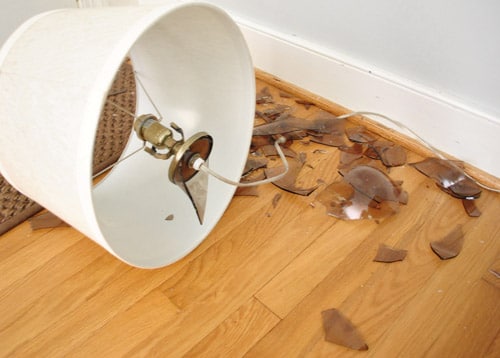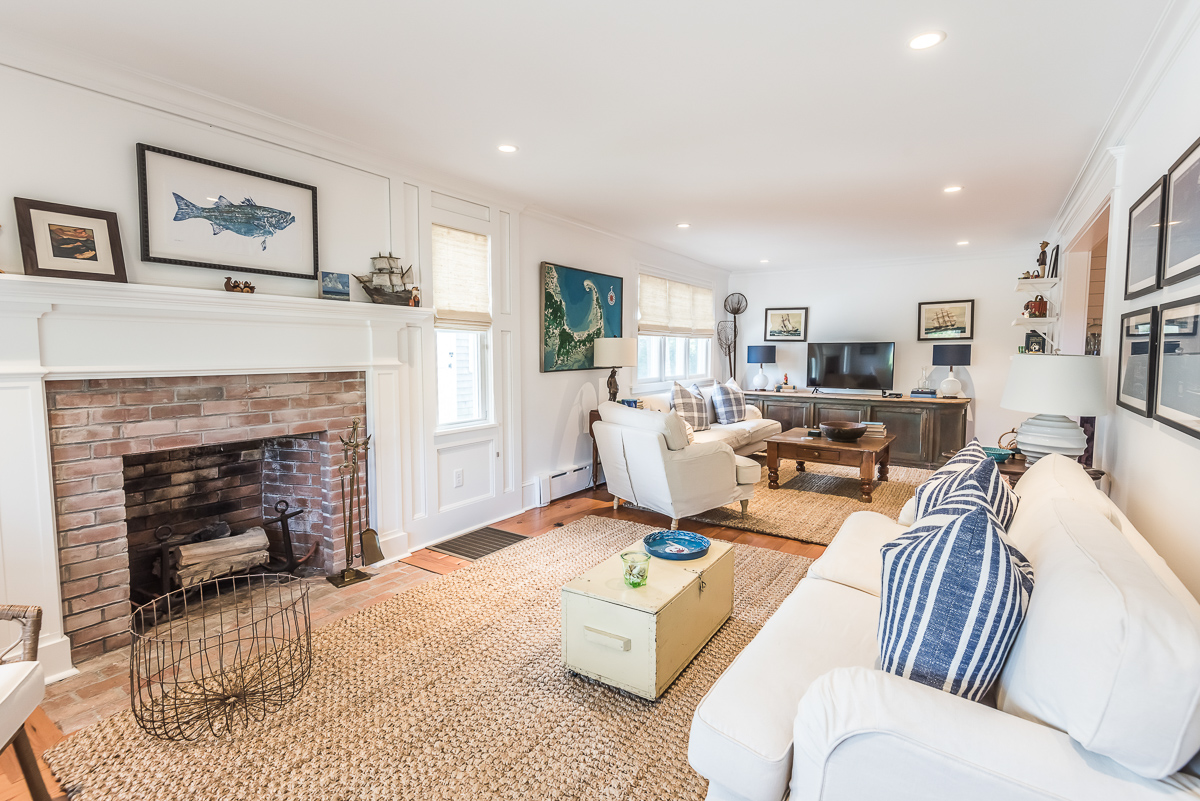First of all, if you’re going to rent, you can’t sweat the small stuff. How will you feel about that water ring left on your coffee table?
When you do summer rentals, you’re running a small business that can gross up to $50,000 each season or more, depending on the property and its location. There will be the inevitable costs of doing business, including expected wear and tear. Vacationing families, if carefully recruited by you or your Cape Cod summer rentals manager, are not careless slobs. Still, accidents happen. But if you expect to build repeat business from guests, you can’t expect to charge them for the cost and hassle of fixing a plugged toilet, a torn screen or a stain on Grandma’s beloved duvet. Which should have been locked away for safe keeping anyway.
They can’t break it if they can’t get at it.
That’s the first word of advice for avoiding rental guest damage to your property: Pack up and lock up anything of great value, whether economic or sentimental. Good guideline to keep in mind.
Take a security deposit.
Besides taking reasonable precautions to protect your valued possessions, you can and should require a refundable security deposit.
For most weekly rentals on the Cape, a typical amount is from $250 to $500, usually collected as a separate check by individual homeowners who rent. Rental managers sometimes take a credit card to keep on file until the guests leave and the property has passed muster with no damage reported.
To play it ultra safe, you can deposit the security deposit check, then write a new one back to the guest after they leave and you or your manager approves of way they left the property. Or you can simply hold the check until departure, then destroy it, assuming no damage at the property. Way more convenient. Though a bit more risky,
because the guest can always cancel the check if you and the guest disagree on whether and to what degree there was assessable damage done during the rental term.
Property Damage Insurance.
Some owners and rental managers prefer to require property damage insurance in lieu of a security deposit. Some require both.
For the insurance, the guest pays a small, non-refundable premium for the policy for which the beneficiary is the homeowner. Premiums range from $50 to $89, and coverage can range from $1,500 per documented incident up to $5,000.
Well, you say, that’s way better than a lowly $500 security deposit, in case something expensive gets damaged when there are rental guests in the house.
True, but keep in mind each claim must be properly filed within a specified period of time, and generally one or more photos must be attached as evidence of the damage claimed. Then you’re at the mercy of the insurance company, who can decide whether or not to pay the claim.
We have to say that in our experience with damage protection insurance, most claims have been promptly approved and paid.
Here are two places to learn more about rental vacation damage protection insurance:
CSA Travel Protection
https://www.vacationrentalinsurance.com/vacationrentaldamage.do
Rental Guardian
The “Moral Hazard” Factor
There’s one other aspect of using damage protection insurance that you may want to consider. It’s called the “moral hazard” factor, as Scott Shane points out in a smallbiztrends.com post:
“Moral hazard is the idea that people will take more risks if they don’t bear the costs of their actions. For example, if you put down a security deposit you want back, you will be more likely to tell your kids not to use the table in the living room as a piece of gymnastics equipment than if you have paid for insurance that covers damage resulting from their gymnastics show.”
Read more at https://smallbiztrends.com/2013/09/damage-insurance-security-deposit.html
Again, in our experience with hundreds of rental guest occupancies, we have not found that rental guests are less respectful of the rental property because there is damage protection insurance in place. Just so you know.




